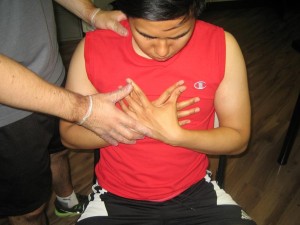It is a known fact that heart infections can be caused by several factors including bacteria, post-surgical infection, and gum disease or due to dental or respiratory procedures. Take note that even damaged heart valves and congenital heart defects can contribute to the development of these infections. It is important to learn about the various types of common heart infections as well as the symptoms. In doing so, early treatment can be provided in order to prevent serious complications from occurring.
What are the types of heart infections?
Among various heart infections, one of the most common includes endocarditis which is an infection of the lining of the heart or the heart valves within the heart. In most cases, the condition is caused by bacteria.
Pericarditis is another heart infection that affects the sac the surrounds and cushions the heart. In this condition, it causes inflammation of the pericardial sac.
Rheumatic fever is another common infection in the heart and known as an inflammatory disease that attacks the tissues of the heart. If the condition is left untreated, it can cause permanent damage to the heart valves.
Symptoms
The symptoms of heart infections tend to vary depending on the type of infection, age of the individual and overall level of health.
For endocarditis, it typically includes chills and high fever. In severe cases, it can also include fatigue and extreme weakness. As for pericarditis, the symptoms include chest pain that is described as sharp or a radiating ache all over the chest, neck and shoulder area. Lastly, the symptoms of rheumatic fever include jerking movements, rash, bumps felt on the bones and arthritis-like symptoms.

You can provide relief to the symptoms. By enrolling in a first aid course, you will learn how to manage the symptoms of these heart conditions.
How heart infections are diagnosed
A heart infection is diagnosed by taking blood tests and an echocardiogram. The doctor will also check the symptoms and complaints to narrow down a specific diagnosis.
Treatment for heart infections
The treatment for most heart infections particularly those caused by bacteria such as endocarditis involves antibiotics for 2-6 weeks. Pericarditis is usually treated based on the underlying cause. As for rheumatic fever, it is often treated with anti-inflammatory medications and even corticosteroids in some case to minimize the inflammation.
Prevention of heart infections
Even though heart infections are often beyond our control, there are certain steps to take in order to protect the heart from developing infections. Proper dental care and oral hygiene is a must in order to prevent bacteria from entering the bloodstream, particularly if periodontal disease is present.
Always remember that tooth infections must be taken care of right away. Those who are diagnosed with congenital heart defects as well as those who have undergone heart procedures are often prescribed with preventive antibiotics before and after the surgical procedures.
